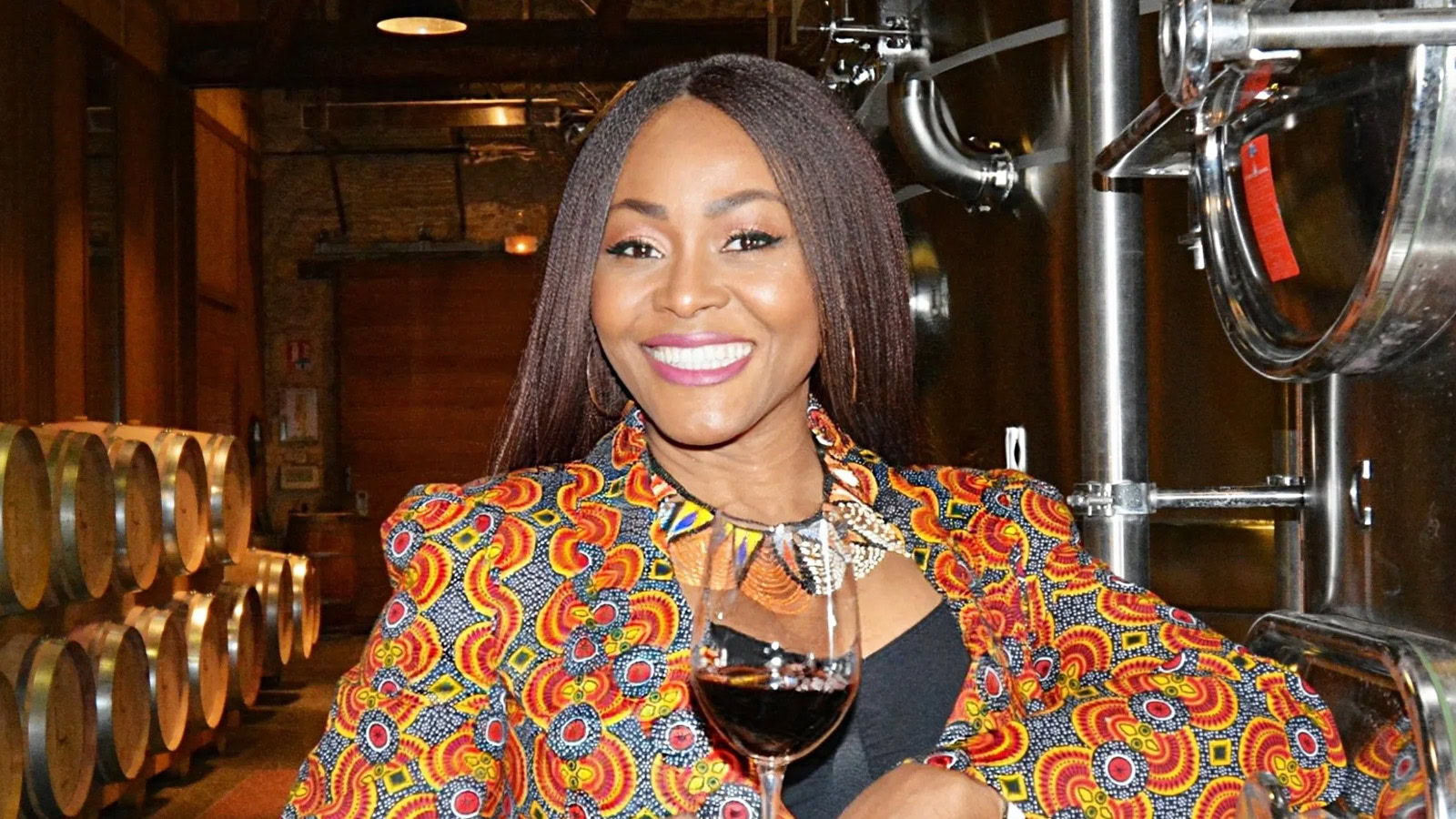In a dynamic episode of Uncorked, Polly Hammond speaks with Chinedu Rita Rosa, founder of Vines by Rosa and co-founder of Bordeaux Mentor Week. As one of Nigeria’s first certified wine experts, Chinedu has spent over 20 years helping European wine brands enter the West African market while simultaneously championing African food and wine pairings in her European home. In this conversation, she shares how wine is growing in Nigeria, why traditional wine education needs to evolve, and how Bordeaux Mentor Week is pushing the industry toward greater inclusivity.
The Evolution of Wine Culture in Nigeria
Unlike traditional wine-producing countries, Nigeria’s drinking culture has been historically dominated by beer. Chinedu, however, fell in love with wine as a teenager when her uncle, an archbishop living in Rome, would bring back Tuscan wines to Lagos. “I was taken,” she recalls. “At 16, I thought, this is what I want to drink for the rest of my life.” But in the 1990s, wine was still a rarity in Nigeria. “You would never have tasted wine unless you were lucky enough to have access,” she explains.
Over time, Nigeria’s economy and social scene evolved, with the country developing a taste for champagne and, later, still wines. Chinedu played a crucial role in shaping this shift, running one of Lagos’ first high-end wine bars, which featured over 350 Bordeaux labels. “We were selling everything from Château Margaux to Smith Haut Lafitte,” she says. This exposure allowed her to help build a consumer base that went beyond status-driven drinking and into genuine wine appreciation.
The Power of Food Pairings in Wine Education
One of Chinedu’s biggest revelations was realizing that successful wine education in Nigeria required breaking away from rigid European traditions. “We don’t eat the way Europeans eat,” she states. “You can’t pair one dish with one wine when you have nine dishes on the table.” Instead, she introduced local food and wine pairings, allowing Nigerians to discover wine on their own terms. “I don’t tell people what they should taste. I give them three wines with one dish, and they choose what works for them,” she says, emphasizing a non-judgmental approach that resonates deeply with new drinkers.
This philosophy isn’t limited to Nigeria. Chinedu now hosts African Food and Wine Tastings in Bordeaux, introducing European audiences to Nigerian and Senegalese dishes paired with wines from France, Italy, and Spain. “I want people to see the connection between Africa and wine,” she says. At her last event, 12 nationalities attended, and more than half had never tasted Nigerian food before. “It was an experience,” she adds.
Bordeaux Mentor Week: Opening Doors to a More Inclusive Wine Industry
Chinedu’s work extends beyond tastings—she’s also changing the face of mentorship in Bordeaux. After discussing diversity in Bordeaux with wine writer Jane Anson, the two launched Bordeaux Mentor Week, an initiative designed to bring in new voices to the industry. “We wanted to show that you don’t have to grow up with wine to have something valuable to contribute,” Chinedu explains.
This year, they selected eight mentees from over 120 applicants, welcoming wine professionals from underrepresented backgrounds. While many in Bordeaux welcomed the initiative, others were hesitant. “Some people still ask, ‘What do I get out of this?’” she notes, but she remains confident that the program will gain more support as it grows. “Next year, they’ll see the impact, and we’ll have more wineries wanting to be involved,” she predicts.
Key Takeaways from Polly and Chinedu’s Conversation
- Cultural context matters in wine education: For new markets like Nigeria, traditional European wine education doesn’t always apply. Pairing local dishes with multiple wines allows drinkers to find what works for them.
- Expanding wine’s reach through food: Chinedu’s African Food and Wine Tastings in Bordeaux and Paris prove that people from all backgrounds are eager to explore new culinary and wine experiences.
- Diversity and mentorship are crucial for wine’s future: Bordeaux Mentor Week is pushing the industry to welcome new perspectives, and Chinedu is determined to see it grow into a global initiative.
As Chinedu puts it, “We need to keep talking about this, and we need to make decisive change.” Whether in Lagos or Bordeaux, her work is proving that wine’s future depends on breaking barriers, embracing new voices, and letting drinkers define their own experiences.
